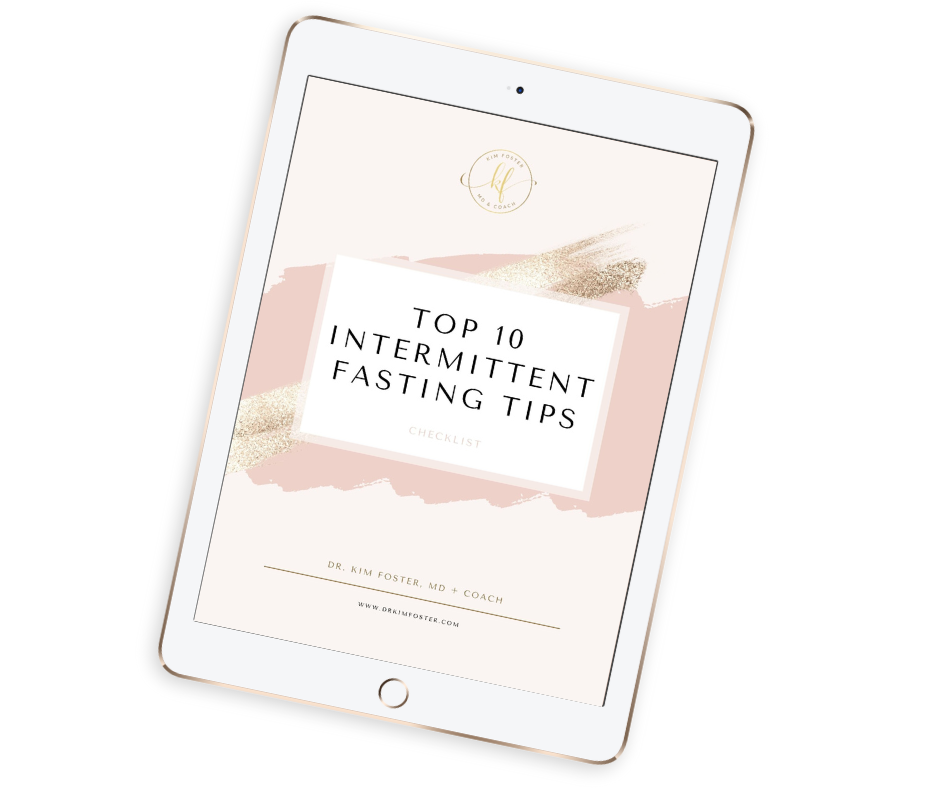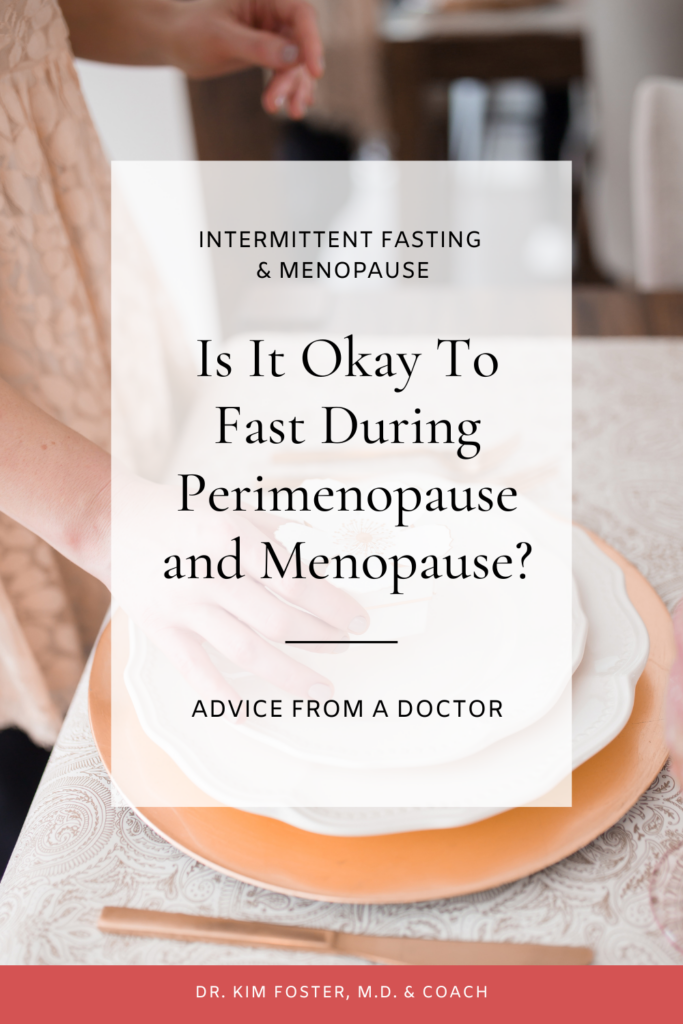If you’re currently going through perimenopause or menopause, you’re likely noticing changes in your body (and mind).
As a result, you might be looking for ways to improve your health during this time, yet you may worry about how your changing body will react to any diet change.
One popular diet/lifestyle change you might consider is intermittent fasting.
A few weeks back, I uploaded a YouTube video on intermittent fasting and women’s hormones, specifically how they interact with the menstrual cycle.
But if you’re no longer having menstrual cycles, you may wonder how IF affects the hormone fluctuations that come with menopause and perimenopause.
That’s what I’m discussing in this week’s YouTube video and article!
5 Ways Intermittent Fasting Affects Perimenopause and Menopause
While more research is needed on this subject, some emerging studies suggest intermittent fasting can have multiple benefits for menopausal women.
I’ve broken this research down into easy-to-understand insights…
1. Hormone Regulation
Research suggests that intermittent fasting can influence hormonal regulation, particularly insulin and human growth hormone.
So, let’s look at how these two hormones impact women during menopause.
Insulin resistance is something commonly associated with age and is something many women experience during menopause.
The research around IF and insulin shows that insulin sensitivity tends to improve with intermittent fasting, meaning IF can benefit women experiencing insulin resistance.
Human growth hormone is crucial in metabolism, muscle maintenance, and fat utilization. After menopause, there is a decline in this hormone, leading to a decrease in muscle mass and metabolic rate.
But again, research shows this hormone tends to increase during fasting periods, meaning IF could be a way to slow down the decline in muscle mass and metabolic rate that often happens as we age.
2. Weight Management & Metabolic Rate
One of the most commonly known benefits of intermittent fasting is weight loss. But is this also true in menopausal women?
The research suggests so!
Along with reducing the risk of insulin resistance and type 2 diabetes (which often causes weight gain), IF enhances metabolic flexibility. During fasting periods, our bodies use stored fat for energy, which can promote weight loss.
If, like many menopausal women, weight gain is something you are experiencing, you’ll surely be pleased to hear this.
But even if weight gain is not an issue for you, research shows that IF can improve metabolic health by improving insulin sensitivity and reducing oxidative stress.
3. Improved Cognitive Function
When we’re going through perimenopause and menopause, we don’t only experience physical changes. Many women also notice mental challenges, like trouble sleeping, difficulty concentrating, and brain fog.
If your cognitive functions have taken a hit during this life stage, intermittent fasting might help!
Emerging research indicates that intermittent fasting may have neuroprotective effects, helping to prevent neurodegenerative disorders like Dementia, Parkinson’s, and Alzheimer’s.
Intermittent fasting can also boost brain health, reducing common menopausal symptoms like forgetfulness, difficulty concentrating, and brain fog.
This is believed to be due to the activation and increase of the brain-derived neurotrophic factor (BDNF) protein. Increased BDNF levels contribute to improved cognitive function by supporting existing neurons’ survival and encouraging new ones’ growth.
4. Improved Mood and Emotional Wellbeing
Perimenopause and menopause can also affect our emotional well-being by causing mood swings and irritability. This is due to the hormonal imbalances and changes in neurotransmitter levels that happen during these stages.
If you’re getting annoyed or angry over every little thing, you’ll be pleased to learn that intermittent fasting can also help with that.
There are two key ways that fasting can improve mood…
The first one is stress reduction. Intermittent fasting has been linked to improved stress resilience and regulation of stress hormones such as cortisol.
Why is this important?
Chronic stress is known to exacerbate menopausal symptoms, especially those related to emotional health.
Secondly, intermittent fasting may influence the gut-brain axis (the bidirectional communication system between the gut and the brain).
One fascinating scientific discovery is that the microbiome in our gut plays a crucial role in producing neurotransmitters and influencing our mood.
Intermittent fasting promotes a healthy gut microbiome, which could keep those mood swings under control.
5. Maintaining Bone Density
Many women notice a decrease in muscle mass during menopause. But another thing that decreases during this stage is bone density.
This is due to the decline of estrogen, which leads to bone loss and increased risk of fractures (Osteoporosis).
While the link between intermittent fasting and bone health is not thoroughly researched, some studies suggest that fasting positively affects bone metabolism.
Here’s why…
Periods of fasting may trigger what’s called a hormetic response, which stimulates adaptive mechanisms that enhance bone density and strength.
As I said, more research is needed in this area, so don’t treat IF as the only protective strategy you need. Taking supplements known for maintaining bone health, such as calcium and vitamin D, remains crucial during menopause.
To learn more about the link between Intermittent Fasting and Menopause, check out this week’s YouTube video:
Here’s where you can watch:
If you’re in perimenopause or menopause and have already tried intermittent fasting, I’d love to hear from you.
Comment below to share your experiences with it!
Let me know in the comments below, or find me on Instagram and send me a DM!
Download my FREE Top 10 Intermittent Fasting Tips Here.


FREE CLASS!
Looking to take your wellness journey to the next level?
The 3 Secrets For Stepping Into A Meaningful New Career Without Wasting Time Or Money
- find out why health & wellness coaching is a skyrocketing industry that can provide the freedom and fulfillment you’ve been craving
- discover the 3 biggest myths about health & wellness coaching that will hold you back (and what the truth is instead)
- learn the secret sauce for getting amazing results for your clients (and building a profitable business as a wellness coach)
…and more!







